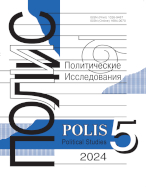“Living by Wits”:
Institutional Analysis of “Ordinary Russian Man’s” Everyday Life
Rubric: Version
For citation:
Oleynik A.N. “Living by Wits”: Institutional Analysis of “Ordinary Russian Man’s” Everyday Life . – Polis. Political Studies. 2001. No. 2
Abstract
Applying the methodology of institutional analysis, the author tries to find out objective foundations of the spread of jail subculture in Russian society. In his opinion, the presence of elements of such a subculture is due to specificity of the way Russian socium is organized. In this connection he puts forward and substantiates the thesis that the institutional structures of jail community and of Russian socium are similar, affined, congruent. The author demonstrates that the key characteristic of the institutional organization of the latter is imposed character of power relations, lack of mechanisms that would allow to ensure their character as relations being agreed upon or at least based on indemnification. It is exactly the respective institutional structures’ actual congruence that the author sees as the explanation of the reasons why jail subculture has penetrated into many spheres of Russians’ everyday life.
Content No. 2, 2001
See also:
Lukin A.V.,
The Transition Period in Russia: Democratization and Liberal Reforms. – Polis. Political Studies. 1999. No2
Oleskin A.V.,
Network Structures of Society from the Viewpoint of Biopolitics. – Polis. Political Studies. 1998. No1
Sokolskaya I.B.,
Is the Conservative Revolution Conservative? (On a Chronological Scale of Political Theories). – Polis. Political Studies. 1999. No6
Kulpin E.S.,
How to Transform Ourselves?. – Polis. Political Studies. 1991. No4
Blyakher L.Ye.,
Want of Nationalism, or National Self-Consciousness in Russia’s Far East. – Polis. Political Studies. 2004. No3





.jpg)






 print
print.jpg)
.jpg)
